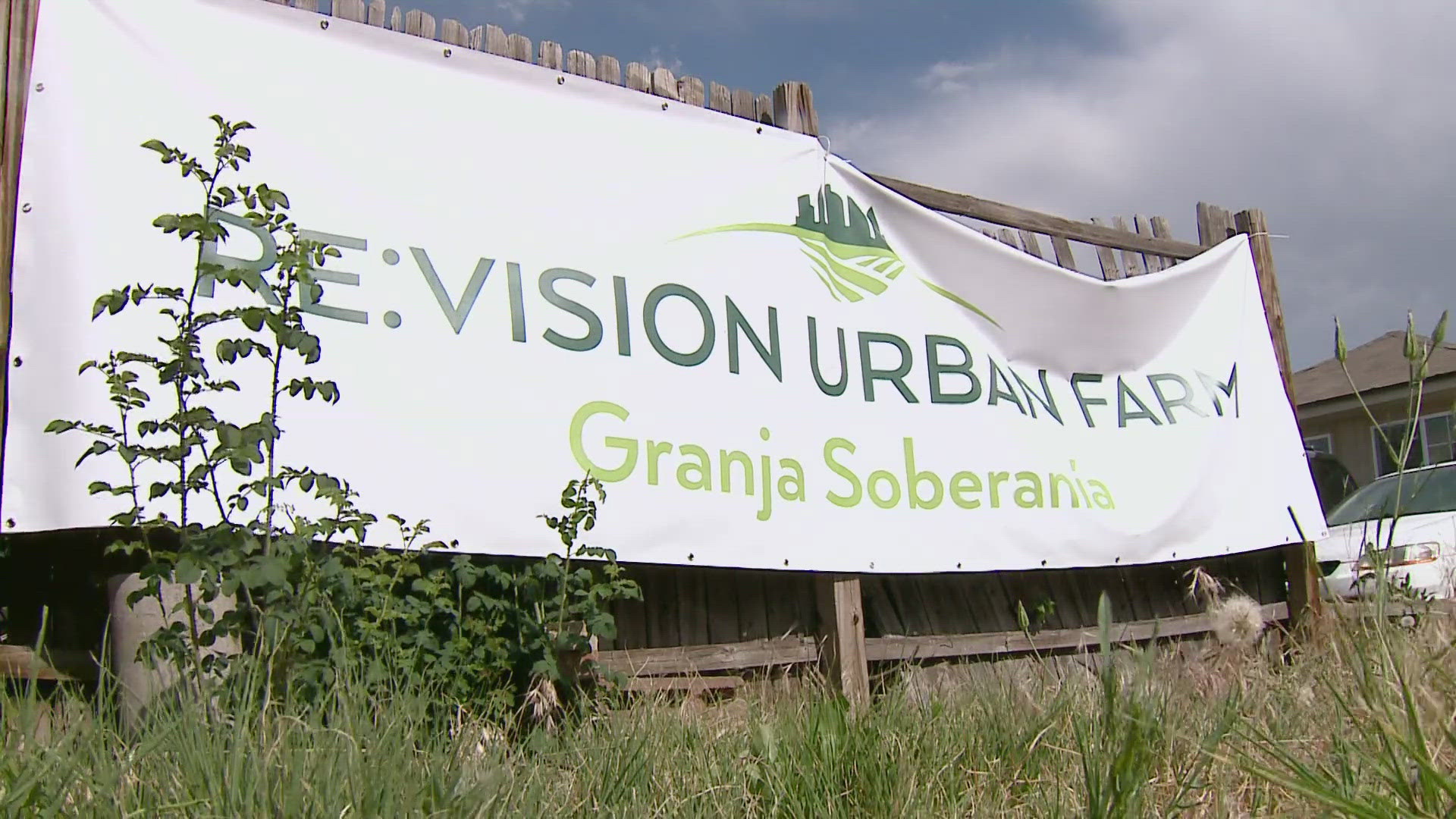DENVER, Colorado — Denver-based nonprofit Re:Vision is expanding its urban farm with a second location. The expansion means the organization will continue to grow its production and food distribution. The team currently produces 20,000 pounds of food every year.
The non-profit mainly serves families and individuals in the Westwood neighborhood where 80% of residents self-identify as Latino and 33% are at or below the poverty line.
It makes Re:Vision's work even more important in a neighborhood considered a food desert. The newest plot of land is located off of Mississippi, down the road from Re:Vision's campus off of Morrison Road.
"Every time we step foot on this, I think it is awe-inspiring because we know that we are going to create such a big impact through the food that is going to be produced here for our communities," said Mariana del Hierro, executive director.
Del Hierro and the team secured funding through congressionally directed spending through Senator Michael Bennett and Representative Dianna DeGette.
The plot of land is owned by the Southwest Improvement Council, which kept the plot off of the public market. The organization wanted to find a community-based partner to sell to and now the land will be in the hands of Re:Vision.
"It is my dream realized," said farm manager David de Santiago. "I feel super happy. I am here right now as if it were my home." He helped grow the urban farm at the Morrison Road campus.
The food grown is distributed throughout the week at Re:Vision's food distribution. Besides that, the campus hosts youth education programs and is home to small businesses.
The team is already preparing the land to be planted and he expects the first harvest to happen this year.
"I spend my time here from sunrise to sunset because this is a job I love from the heart," said de Santiago. "Where I come from, it's what I did. I was born in the country."
The Mississippi location will also be home to champion gardens, where families can tend to their gardens with the help of a promotoras or community health workers who will work one-on-one with families.
"Being able to access this land doesn’t just mean being able to grow more food. For us at Re:Vision, we also try to work at the root causes of food insecurity," said del Hierro.
SUGGESTED VIDEOS: Latest from 9NEWS

